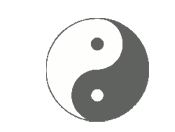The Essentials of Media Literacy
Media literacy is an important life skill today, given the influence of popular culture and mass media upon both our individual, and also our collective, values, behaviours and attitudes. This influence particularly requires our attention, because it happens often at an unconscious level in the human psyche. More than fifty years ago, maverick thinkers began to recognize media as the fourth educator, and as significant as family, school and place of worship, in regard to shaping human values.
Media literacy became a global educational movement, initiated more than thirty years ago in Australia, where media studies was introduced as a new school curriculum subject, followed by similar curricula taught in England and Scotland. In Canada, Ontario was the first province where teachers advocated, throughout a decade, for the inclusion of media literacy, before Ontario's provincial educational ministry accepted it in elementary and secondary schools, in 1989. Today, media literacy organizations and media in school curricula exist across Canada, and in countries globally..
Given the visible signs of serious climate and ecological change at this historic moment, environmental awareness is imperative. The connection of media literacy with ecological literacy is obvious. My own more recent research explores when and why Euro-western culture split its collective consciousness, separating human existence from the source of life - the Earth and, symbolically, the `Divine Feminine.' That is why I show the image of Venus of Willendorf to be representative of the healing that Western society must undertake to renew balance with the world of Nature. She symbolizes the need for us to remember what sustains life, and to revitalize the Divine/Sacred Feminine, in order to live on Earth with more care and respect again.
The above example illustrates that, although school teachers originally spear-headed media education, other valuable players include media professionals, such as journalists, documentary filmmakers and artists, whether working within media literacy organizations or independently in communities and schools. While teachers continue to advocate for the expansion of media studies beyond language arts into several other curricula, media literacy remains an under-recognized life skill to provide for learners of all ages in the wider community.
Critical thinking is one of the core skills taught in media literacy, whether learners are analyzing media or creating their own media productions. Critical thinking also means thinking independently, and therefore requires the development of skills to challenge conventional wisdom that, consciously or unconsciously, perpetuates misinformation, outdated knowledge, cultural racism and confusion based on conflicting information about environmental issues. In other words, learners are encouraged how to think rather than told what to think. This pursuit challenges the limitations of teaching approaches such as transmission and transaction. Media education, to be taught effectively, calls upon experiential approaches to learning, such as transformative learning, in order to develop higher order cognitive skills.
For more than twenty years, I have been a media educator, as a disillusioned journalist, and also as a social critic intent on investigating the root causes of the excessive materialism of Western culture. My explorations led me to a less judgmental and more compassionate insight through the works of spiritual psychologists, including Roberto Assagioli, Carl G. Jung and Viktor E. Frankl. As a witness to North American society in the 1950s, Austrian psychiatrist Viktor E. Frankl identified "an existential vacuum." This scenario is worse today and, I suggest, is one of the causes of heightened mental health and environmental problems.
My own formulation of media literacy, therefore, differs from the academic field of `cultural studies.' Instead, my media education processes are grounded in transformative learning, initially to address cultural racism, then leading to the ongoing examination of Western cultural systems. In my view, racism cannot be deconstructed unless the spiritual worldviews of various cultures are taken into consideration. This view developed through many years of a cross-cultural focus in my published writings, and media literacy workshops about Aboriginal misrepresentations in all forms of media, from pop culture to textbooks, and engaged with interdisciplinary fields that include anthropology, sociology, psychology, education and, of course, ecological studies.



